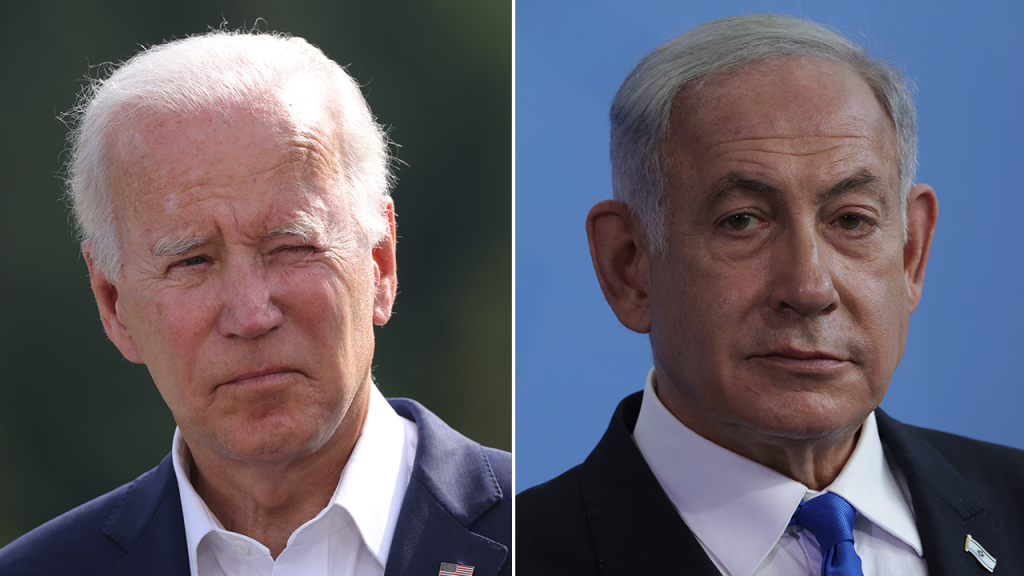Israel plans to deploy additional troops to assist with operations against Hamas in Rafah, as announced by Israeli Foreign Minister Yoav Gallant. Gallant stated that Israeli operations have already destroyed multiple Hamas tunnels in the area, with plans to intensify the activity as additional forces arrive. President Biden warned that the U.S. will pause military aid if Israel moves forward with a full-scale operation in Gaza. Despite this, Israel has ramped up attacks in Rafah and northern Gaza, securing a Hamas training ground and recovering equipment and vehicles used by Hamas to simulate combat with Israeli forces.
Israel has backed off from an all-out assault in Rafah and has resorted to more precise strikes. Prime Minister Benjamin Netanyahu has vowed that the IDF will root out Hamas from Rafah. Rafah is a city hosting approximately 1.5 million displaced Palestinians, many of whom fled northern Gaza. Israel views Rafah as the final major stronghold for Hamas in the region. Biden’s administration has offered to share intelligence on Hamas leadership with Israel in exchange for restraint in Rafah. This intelligence would help Israel pinpoint Hamas leaders hidden in tunnels around the city, allowing for a more precise campaign that could minimize devastation seen in other areas of Gaza.
The deployment of additional troops and the intensified operation against Hamas in Rafah come at a time of heightened tensions between Israel, the U.S., and Hamas. Israel has been conducting targeted operations to wear down Hamas, which it claims lacks the ability to reorganize, has no reserve troops or supply stocks, and cannot treat the terrorists being targeted by Israeli forces. President Biden’s warning regarding military aid and the ultimatum to Israel regarding Rafah operations reflect the delicate political and military dynamics in the region.
Israel’s decision to focus on Rafah and its efforts to root out Hamas from the city have far-reaching implications for the conflict in Gaza. The city is a significant stronghold for Hamas, and Israel believes that removing Hamas from Rafah would be a critical blow to the organization. The offer of intelligence sharing by the Biden administration further underscores the importance of precise targeting and minimizing civilian casualties in the conflict. The use of more targeted strikes in Rafah rather than a full-scale assault demonstrates Israel’s approach to balancing military objectives with international concerns about civilian casualties and the humanitarian situation in Gaza.
The ongoing conflict in Rafah has drawn attention to the complexity of the Israeli-Palestinian conflict and the challenges in finding a resolution. The displacement of Palestinians and the presence of armed groups like Hamas in cities like Rafah highlight the deep-seated issues that continue to fuel violence and instability in the region. The involvement of the U.S. in offering intelligence support to Israel shows the intricate web of alliances and interests at play in the conflict. The move to intensify operations against Hamas in Rafah reflects Israel’s determination to address the security threats posed by the organization, while also attempting to navigate international pressure and concerns about the humanitarian situation in Gaza.
As Israel deploys additional troops and intensifies operations in Rafah, the situation in Gaza remains volatile and complex. The U.S.’s role in providing intelligence support to Israel highlights the broader international dimensions of the conflict and the challenges of balancing military objectives with humanitarian concerns. The ongoing conflict underscores the need for a comprehensive and sustainable solution to address the root causes of the Israeli-Palestinian conflict and bring about long-term stability and peace in the region. Israel’s efforts to wear down Hamas in Rafah and root out the organization from the city are part of a broader strategy to address the security threats facing the country, while also navigating the complexities of the conflict and international pressure.













